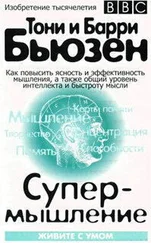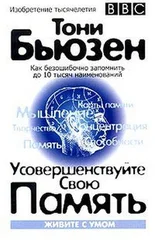Root Number 10
logo log
Meaning: ‘word’ (from the Greek ‘ logos ’)
‘This root will certainly help you to become more logicalin your thinking, and hopefully will encourage you to become a logodidalist.’
Example words
Logolatary noun. The worship of logic.
‘Her love of the Greek philosophers and their introduction of logic into the thought systems of the world led her increasingly towards logolatary.’
Logogog noun. One who legislates on word meanings’.
‘The publishers of the new dictionary hired the nation’s top logogogto guarantee the quality of their product.’
Logodaedaly noun. Playing cleverly and wittily with words; a verbal juggler.
‘With his newly enriched vocabulary he began to entertain his friends with logodaedaly.’
Root Number 11
magna magni
Meaning: great (from the Latin ‘ magnus ’)
‘This great root will help you to increase the magnitudeof your already large vocabulary, and to realize the power, beauty and magnificenceof the language you speak.’
Example words
Magnify verb. To make greater.
‘Both telescopes and microscopes magnifythe macro-cosmos and the micro-cosmos, making them more readily comprehendible to our inquisitive minds.’
Magnate noun. Someone of great wealth and power.
‘When the shipping magnatevisited the city, he arranged a meeting with those wielding similar power.’
Magnanimous adjective. Great-hearted; generous.
‘He was magnanimousto the point of becoming a saint.’
Root Number 12
mem
Meaning: remember (from the Latin ‘ memor ’, mindful)
‘This root will quite obviously help improve your memoryby enabling you more easily to understand and rememberwords, which, when you use them, will make you more memorableto others!’
Example words
Memoir noun. A record of things you wish to remember.
‘He thought his life had been so exciting and original that he decided to write a memoirof it in the form of an autobiography.
Memorabilia noun. Things judged worthy of keeping for purposes of memory.
‘Many people’s attics or basements are filled with memorabiliathat help them to recall the special people, places and events in their lives.’
Im memorial adjective. Long past; having occurred so long ago that there is no record of it.
‘Human beings have composed poetry and songs from time immemorial.’
Root Number 13
neo
Meaning: new or recent (from the Greek ‘ neos ’)
‘At this stage in your vocabulary development you will no longer be a neophyte; you will have become a skilled user of words and language, and will have given great pleasure and stimulation to your neocortex!’
Example words
Neophyte noun. A novice, a beginner, a new convert.
‘As he was a neophytein the spiritual order, he decided to listen first and speak second.’
Neolithic adjective. The ‘new’ era when humans began to grow crops and domesticate animals.
‘The Neolithicera marked one of the great creative leaps in the development of humankind’s thinking.’
Neology noun. The use of new words in a language.
‘ Neologyhas traditionally added to the richness and variety of the spoken and written language.’
Root Number 14
nov
Meaning: new (from the Latin ‘ nova ’, ‘ novus ’)
‘This root will help you become more innovative, allowing you to think in novelways. It might even inspire you to renovateareas of your life and even to write a novel!’
Example words
Novelist noun. One who writes a new literary work.
‘After many years of factual writing, the author decided to use his imagination to write a major new work of fiction; he decided to become a novelist.’
Novice noun. One who is new at any skill or enterprise.
‘Although he was a noviceat soccer, his footballing skills were those of a seasoned campaigner.’
Super nova noun. A star which suddenly explodes, taking on a new form. In the process it shines with millions of times its usual brightness.
‘The crab nebula is a giant cloud-like structure which is the gigantic remains of a star that became a supernovamany millions of years ago.’
Root Number 15
nunci nounc
Meaning: speak; declare; announce (from the Latin verb ‘ nuntiare ’)
‘With this root you will be able to announcethat your enunciationand ability to pronouncehave improved!’
Example words
Pro nunciation noun. The sound of the utterance; the articulation of the spoken word.
‘It is interesting that many people incorrectly pronounce “ pronunciation” “ pronounciation”!’
E nunciate verb. To pronounce carefully and accurately.
‘In order to make himself easily understood, he decided to use simple language and to enunciateclearly.’
Root Number 16
opus oper
Meaning: work (from the Latin ‘ opus ’)
‘With this root, which has also come to describe a large piece of choral music, you will better understand the nature of co-operation, will derive added appreciation from the “little operas” known as operettas, and hopefully will become an even smarter operator!’
Example words
Operative adjective. Causing to operate; having the power to act.
‘The machine, after months of not working, suddenly and mysteriously became operative.’
Operalogue noun. A declamation on an opera, which presents a summary of the story.
‘Before going to see Madame Butterfly , they were pleased to be able to attend an operaloguegiven by the conductor.’
Opusnoun. A musical work or composition.
‘Baron Philippe Rothschilde and Robert Mondavi, the great French and American winemakers, decided to call the first wine they made together “ OpusI”.’
Root Number 17
pan
Meaning: all (from the Greek ‘ pan ’)
‘This word should be housed in your pantheonof great roots, for it will help you on your road to pansophyor universal wisdom!’
Example words
Pantheism noun. The belief that identifies God with the Universe, or regards the Universe as a manifestation of God.
‘She regarded the forces of nature as divine, she was a pantheist.’
Читать дальше












